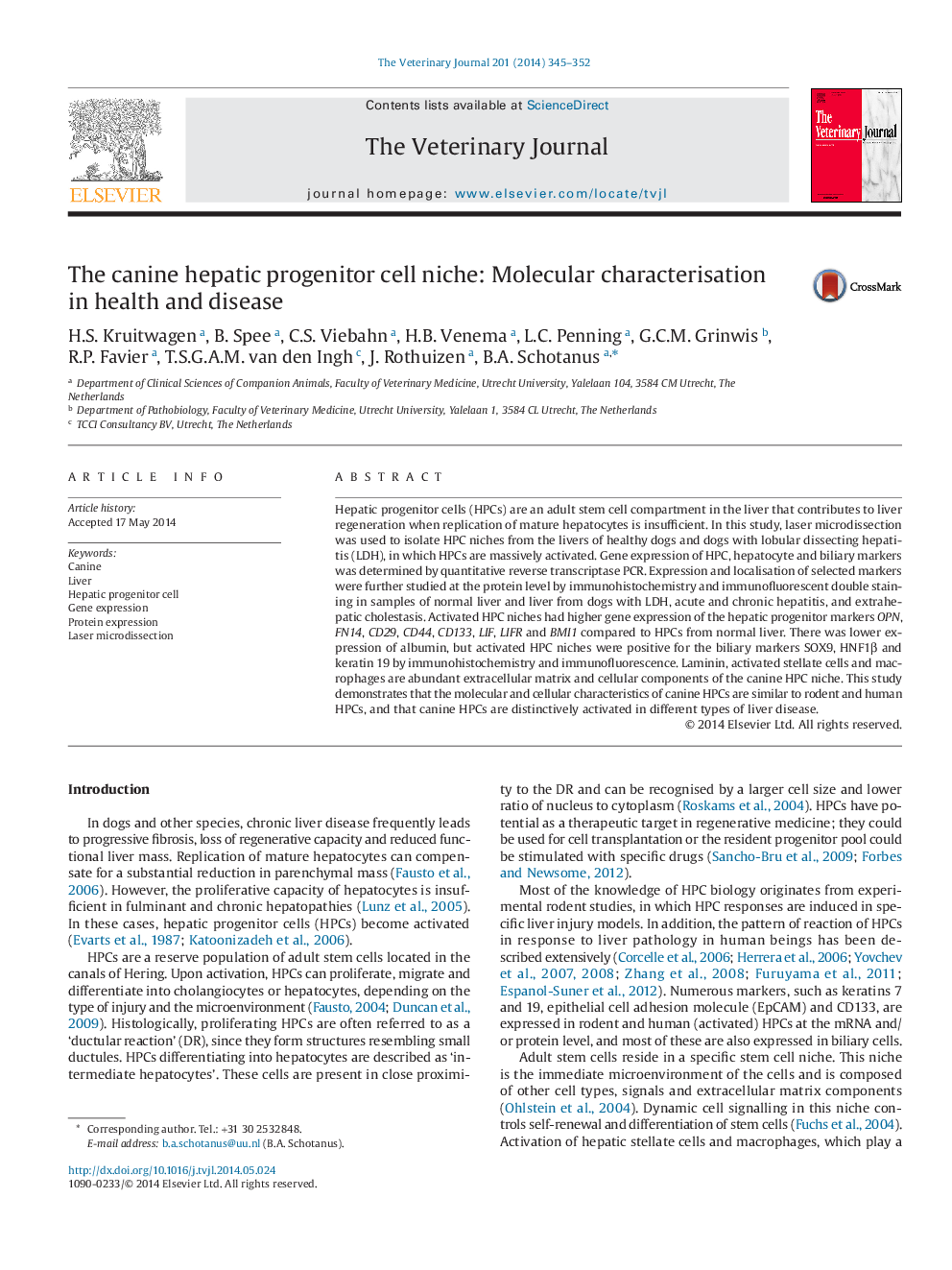| کد مقاله | کد نشریه | سال انتشار | مقاله انگلیسی | نسخه تمام متن |
|---|---|---|---|---|
| 5797976 | 1111766 | 2014 | 8 صفحه PDF | دانلود رایگان |
Hepatic progenitor cells (HPCs) are an adult stem cell compartment in the liver that contributes to liver regeneration when replication of mature hepatocytes is insufficient. In this study, laser microdissection was used to isolate HPC niches from the livers of healthy dogs and dogs with lobular dissecting hepatitis (LDH), in which HPCs are massively activated. Gene expression of HPC, hepatocyte and biliary markers was determined by quantitative reverse transcriptase PCR. Expression and localisation of selected markers were further studied at the protein level by immunohistochemistry and immunofluorescent double staining in samples of normal liver and liver from dogs with LDH, acute and chronic hepatitis, and extrahepatic cholestasis. Activated HPC niches had higher gene expression of the hepatic progenitor markers OPN, FN14, CD29, CD44, CD133, LIF, LIFR and BMI1 compared to HPCs from normal liver. There was lower expression of albumin, but activated HPC niches were positive for the biliary markers SOX9, HNF1β and keratin 19 by immunohistochemistry and immunofluorescence. Laminin, activated stellate cells and macrophages are abundant extracellular matrix and cellular components of the canine HPC niche. This study demonstrates that the molecular and cellular characteristics of canine HPCs are similar to rodent and human HPCs, and that canine HPCs are distinctively activated in different types of liver disease.
Journal: The Veterinary Journal - Volume 201, Issue 3, September 2014, Pages 345-352
